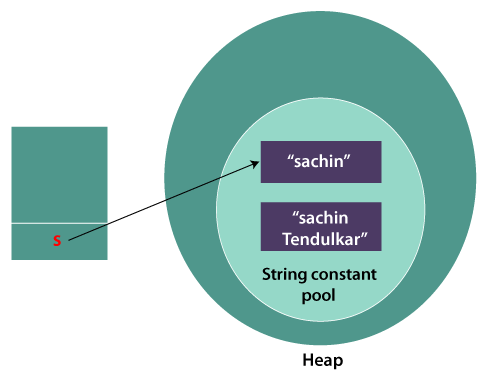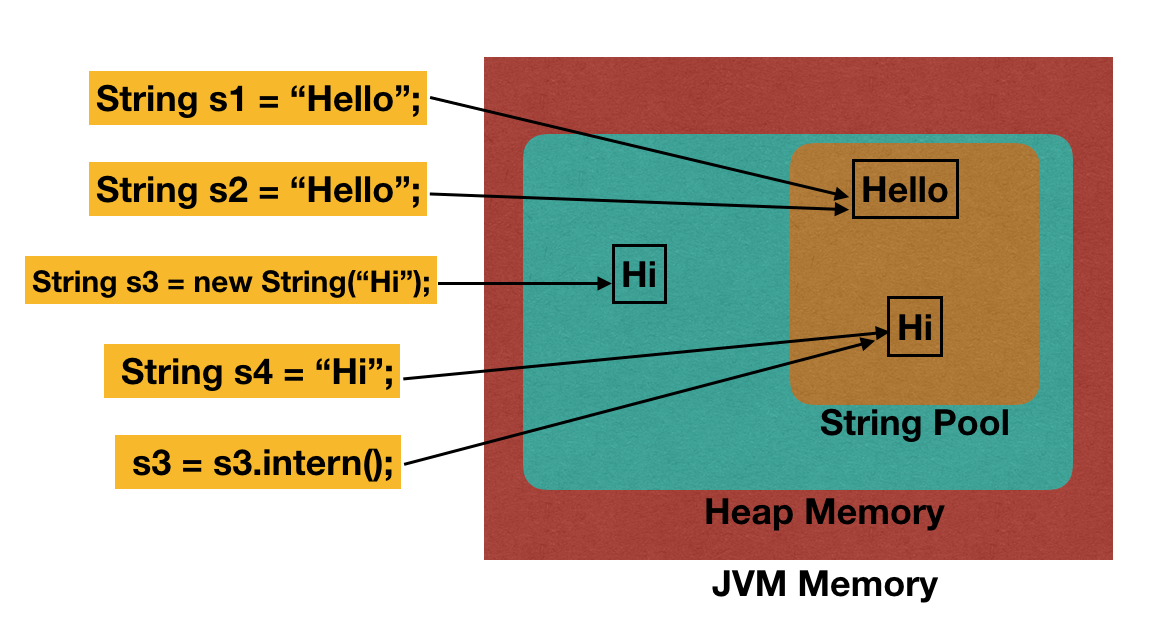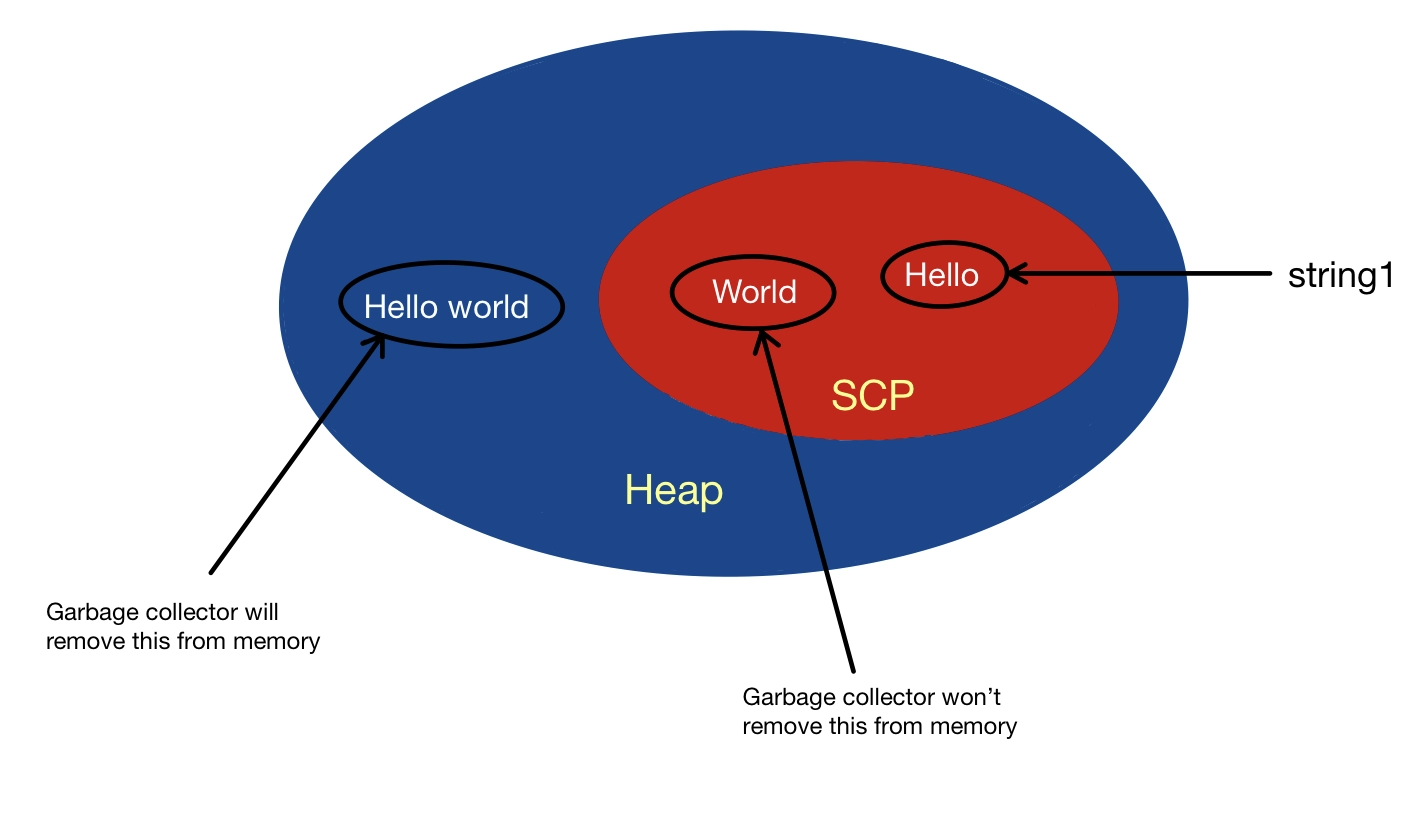Immutable Strings: A Trick Component in Ensuring Data Consistency and Dependability
In the realm of information monitoring, the significance of unalterable strings can not be overemphasized. These unchanging series of personalities play a pivotal function in promoting the honesty and precision of information within systems. By maintaining a state of immutability, data uniformity is guaranteed, cultivating a foundation of dependability whereupon crucial procedures depend. The principle of unalterable strings transcends mere triviality; it is a linchpin in the complicated web of information administration. As we check out the advantages, application techniques, and functional applications of immutable strings, a more clear image emerges of their vital nature in protecting the electronic landscape.
The Concept of Unalterable Strings
Immutable strings, a basic principle in programming, refer to strings that can not be changed when they are produced. In essence, when a string worth is assigned, any type of operation that shows up to modify the string actually creates a new string. This immutability makes certain information uniformity and integrity in applications, as it avoids unforeseen changes to the initial information.
Advantages in Information Consistency

Data consistency is vital in different elements of software application development, including database monitoring, multi-threaded settings, and distributed systems (Why are strings immutable in Java?). Immutable strings add significantly to achieving this uniformity by preventing information corruption because of simultaneous accessibility. In circumstances where several processes or threads communicate with the same information simultaneously, unalterable strings serve as a secure against race conditions and synchronization issues
Moreover, the immutability of strings simplifies debugging and testing processes. With unalterable strings, designers can trust that once a string is set, it will continue to be unchanged, making it easier to trace the source of mistakes and ensuring that examination cases produce constant outcomes. This reliability in data dealing with eventually leads to more steady and durable applications.

Implementing Unalterable Strings
Making certain the immutability of strings calls for a thoughtful method to their implementation in software program growth. Once a string object is created, one crucial method is to make string courses in a means that stops modifications. By making strings unalterable, developers can improve information uniformity and reliability in their applications.
To carry out unalterable strings efficiently, programmers must prefer developing new string things instead of customizing existing ones. This technique makes sure that when a string is appointed a value, it can not be transformed. In addition, any kind of procedure that shows up to modify web the string ought to create a new string with the wanted modifications as opposed to altering the original.
Moreover, utilizing unalterable strings can simplify concurrency management in multi-threaded settings. Since unalterable strings can not be altered after creation, they can be securely shared amongst multiple strings without the threat of information corruption.
Function in Dependability Guarantee
In software application development, the utilization of immutable strings plays a crucial function in making certain the reliability of data operations. Immutable strings, as soon as developed, can not be modified, ensuring that the data they represent stays constant throughout the application's implementation. This immutability building gives a level of assurance that the data being refined will not be unintentionally altered, leading to unexpected end results or mistakes in the system.
By including unalterable strings into software program style, designers can boost the dependability of their applications by reducing the threats related to mutable information - Why are strings immutable in Java?. Immutable strings help in protecting against data corruption or unintentional adjustments, which can be specifically crucial when managing delicate information or when data integrity is paramount
Additionally, using immutable strings streamlines concurrent processing, as multiple threads can securely accessibility and share string information without the danger of one string modifying the content while an additional reads it. This element adds substantially to the general dependability of the software application system, guaranteeing consistent and predictable habits in data dealing with procedures.
Applications and System Integration
The smooth assimilation of unalterable strings right into various applications and systems is critical for guaranteeing robust data consistency and integrity across varied technological settings - Why are strings immutable in Java?. Immutable strings play a vital role in enhancing the integrity of information exchanges and communications within complicated software program communities. By including unalterable strings right into applications, programmers can minimize the dangers related to data meddling, unauthorized modifications, and unintended modifications, thus strengthening the total safety and security stance of the system
In the context of system assimilation, unalterable strings act as a fundamental element for developing protected communication channels and promoting seamless information transfers between different parts. Their unalterable nature ensures that information transferred in between systems continues to be unchanged and proven, our website lowering the probability of inconsistencies or errors that could compromise the honesty of the entire system. Moreover, unalterable strings can improve interoperability click here for info in between inconsonant systems by supplying a standardized layout for data representation, allowing more efficient information handling and exchange methods throughout interconnected platforms. By taking on immutable strings in applications and system combination procedures, organizations can fortify their data infrastructure and maintain the reliability and uniformity of their info assets.
Final Thought
In conclusion, immutable strings play a crucial function in keeping data uniformity and dependability in various applications and system assimilations. By making certain that strings can not be changed when developed, the stability of information is preserved, minimizing the threat of mistakes and disparities. Implementing unalterable strings can significantly boost the dependability of systems, inevitably leading to more reliable and accurate information handling.

Comments on “Why Are Strings Immutable in Java? Security and Performance Benefits”